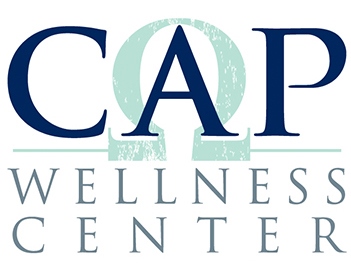“It takes a village” is a term that was always said to me throughout the early years of having my son. I was lucky enough to have family that was nearby to give me a break if I needed to shower, exercise, or just be alone. I thought about the people I knew who didn’t have family and were doing it all alone, or the single moms I knew who didn’t have family and were doing it by themselves.
Sometimes your village becomes your neighbor or your best friend, or you pay a nanny. But no one can do it alone. That’s not to say that it’s easy to ask for help. Most of us wish we could do it alone, or feel like we are supposed to be able to do it all alone, rather than feel like burdening someone else, but it’s just not possible. We need each other.
Similarly, it takes a village to support you through the process of infertility. While the number of families that are having challenges conceiving is rising and IVF and IUI are becoming more widely used, there is still a silence and shame that comes with having a difficult time conceiving. At my clinic when I hear my patient’s stories, I wish I could link them up and have them talk to each other, that somehow they would realize that they are not alone in this journey and that would help them through it.
It’s an emotional ride that my patients go through, and by the time they come to my office they have often been trying for years. The only people in their lives that they feel they can talk to about it are their husbands, partners, doctors, and myself. There are support groups out there, and internet forums, and some take advantage of those resources, but the wide spread shame and silence can feel so isolating and lonely.
I am a big fan of Brene Brown and her work on shame and vulnerability. In her book, The Gifts of Imperfection she says this about shame:
“Shame needs three things to grow out of control in our lives: secrecy, silence, and judgment. When something shaming happens and we keep it locked up, it festers and grows. It consumes us. We need to share our experience. Shame happens between people, and it heals between people. If we can find someone who has earned the right to hear our story, we need to tell it.”
In a moment I’ll tell you about how acupuncture can help with fertility, but part of the work that my clients do during our sessions is talk about the shame that comes with the challenges of infertility. I believe this is equally important in helping couples achieve their dream of having a baby and growing a family.
Brene Brown’s Elements of Shame Resilience Strategy consists of:
- Name it
- Talk about it
- Own your story
- Tell the story
For more information on her work, I recommend listening to her Ted Talk on shame to learn more.
How does Acupuncture help with Infertility?
Acupuncture has been around for over 6500 years. Its main use is to increase blood circulation. With a complete exam and diagnosis, an acupuncturist can determine where blockages are in the body and direct blood flow to those areas to allow for function to occur. Blood carries the vital nutrients we need to have proper function and be pain free, and in the case of fertility, acupuncture helps to bring more blood flow your hormonal system, and reproductive organs.
What to Expect:
I have been helping families achieve their dream of having a baby and growing a family for the past 7 years. The first visit is about 1.5 hours and includes the consult and acupuncture treatment. We will go over your medical history in detail, as well as your lifestyle to see if anything can be improved help your fertility.
How many Treatments Usually?
Women are born with about 1-2 million immature eggs or follicles in their ovaries. It takes about 90 days for a women’s eggs to mature and produce an egg that is viable for insemination. Similarly for men it takes about 72 days for sperm to mature at the time of ejaculation.
Anything that we do today can influence the egg and sperm that will eventually mature 72 days (men) 90 days (women) later.
For this reason, I recommend that my patients receive a minimum treatment of 1-2 times a week for about 14 weeks. After three months of treatment, we have a good idea of how you respond to treatment by how your symptoms are improving.
Most patients report feeling more relaxed, better sleep, more energy, and an overall a sense of balance. All of these are great signs that the body is become more fertile.
If you are so lucky to have someone trust you with the struggle that they are going through and think they may benefit from acupuncture, you can have them contact me for a free in-person or phone consult. If you live in another part of the country I may be able to point you in the direction of an acupuncturist in your area.
